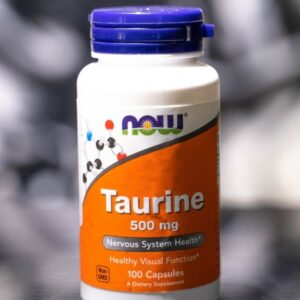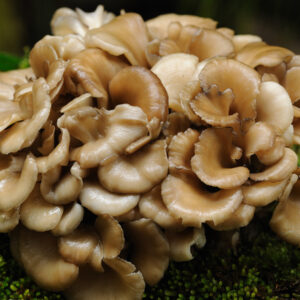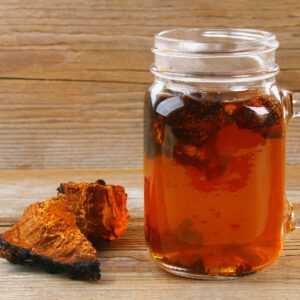Herbs and spices have been used for centuries not only to enhance the flavors of dishes but also for their powerful health benefits. Packed with antioxidants, vitamins, minerals, and other bioactive compounds, these culinary additions can offer a wide range of medicinal properties. In this comprehensive guide, we will explore 10 delicious herbs and spices with powerful health benefits that you can incorporate into your daily diet.
Turmeric:
Turmeric is a bright yellow spice commonly used in Indian cuisine. It contains a compound called curcumin, which has potent anti-inflammatory and antioxidant properties. Curcumin has been studied for its potential to alleviate symptoms of chronic diseases such as arthritis, heart disease, and even certain types of cancer. To enjoy its benefits, sprinkle turmeric on roasted vegetables, add it to soups, or incorporate it into salad dressings.
Cinnamon:
Cinnamon is a fragrant spice known for its sweet and warm flavor. It has been used in traditional medicine to support healthy blood sugar levels and improve insulin sensitivity. Additionally, cinnamon exhibits antimicrobial and anti-inflammatory effects. You can sprinkle cinnamon on oatmeal, add it to baked goods, or stir it into your morning coffee for a delightful and healthful twist.
Ginger:
Ginger has a distinct spicy and pungent taste and is commonly used in both sweet and savory dishes. It has long been praised for its ability to alleviate digestive issues such as nausea, indigestion, and bloating. Ginger also possesses anti-inflammatory properties and may help reduce muscle soreness and joint pain. Incorporate fresh or powdered ginger into stir-fries, smoothies, or steep it in hot water for a soothing ginger tea.
Garlic:
Garlic is a versatile herb that adds a strong and savory flavor to various dishes. It contains a compound called allicin, which has been shown to have antimicrobial and immune-boosting properties. Garlic may also help reduce blood pressure and improve heart health. To maximize its benefits, crush or chop garlic cloves and let them sit for a few minutes before cooking to activate the enzymes responsible for allicin formation.
Rosemary:
Rosemary is a fragrant herb with needle-like leaves and a robust flavor. It is rich in antioxidants and has been linked to improved digestion, enhanced memory, and reduced inflammation. Rosemary’s antimicrobial properties also make it a valuable ingredient for preserving food. Add fresh or dried rosemary to roasted meats, potatoes, or homemade bread for a burst of flavor and health benefits.
Oregano:
Oregano is a staple herb in Mediterranean cuisine and is renowned for its antioxidant and antimicrobial properties. It contains compounds such as carvacrol and thymol, which have been shown to have antibacterial and antifungal effects. Oregano may also help support a healthy immune system. Sprinkle dried oregano on pizzas, pasta sauces, or incorporate it into salad dressings and marinades.
Basil:
Basil is an aromatic herb commonly used in Italian and Thai cuisines. It is an excellent source of vitamins A, K, and C, as well as various essential minerals. Basil contains volatile oils with anti-inflammatory and antimicrobial properties. It has also been associated with improved digestion and stress reduction. Use fresh basil in pasta dishes, salads, or make a homemade pesto sauce.
Cumin:
Cumin is a warm and earthy spice commonly found in Mexican, Middle Eastern, and Indian cuisines. It is rich in iron and may help enhance digestion and reduce bloating. Cumin also exhibits antioxidant and anti-inflammatory effects. Toast whole cumin seeds and grind them for a flavorful addition to curries, soups, or roasted vegetables.
Sage:
Sage is a herb with a slightly bitter flavor and aromatic properties. It has been used traditionally to support oral health, alleviate menopausal symptoms, and improve memory and cognition. Sage contains compounds that possess antimicrobial and anti-inflammatory properties. Add fresh or dried sage to stuffing, roasted meats, or infuse it in hot water for a soothing tea.
Thyme:
Thyme is a fragrant herb commonly used in Mediterranean cuisine. It contains thymol, a compound known for its antibacterial properties. Thyme has also been shown to have antioxidant and anti-inflammatory effects. This versatile herb pairs well with roasted vegetables, poultry, or can be added to soups and stews for a delightful flavor.
Incorporating these 10 delicious herbs and spices into your daily cooking can not only enhance the taste of your meals but also provide you with a range of powerful health benefits. Experiment with different combinations and recipes to enjoy the flavors and medicinal properties these culinary additions have to offer. Remember to consult a healthcare professional if you have any specific health concerns or are taking medications that may interact with these herbs and spices.
- Chill Out with Slushie Bar Salts: The Ultimate Guide to Cool Vape Flavors - February 27, 2024
- Dinamex Marijuana Strain - September 9, 2023
- Dried Fruit: Good or Bad? - July 8, 2023










